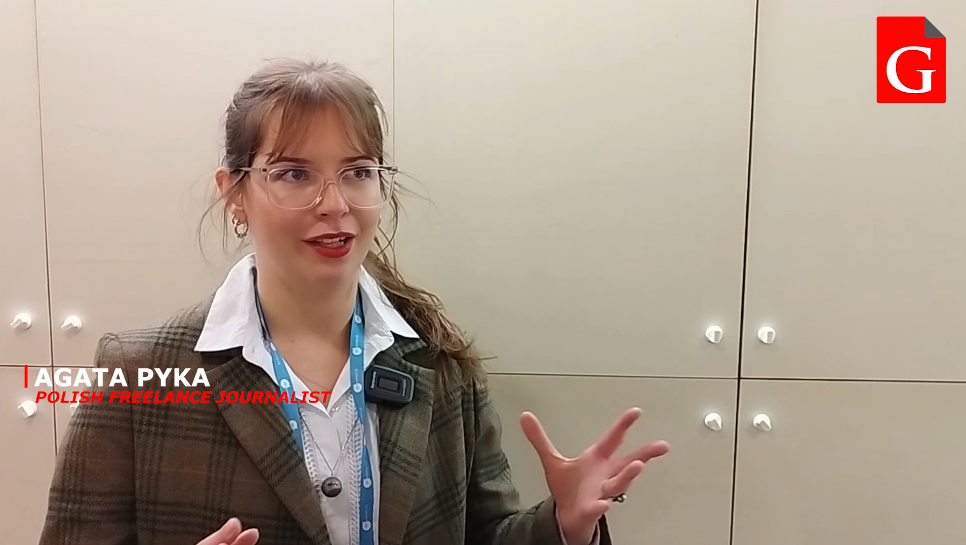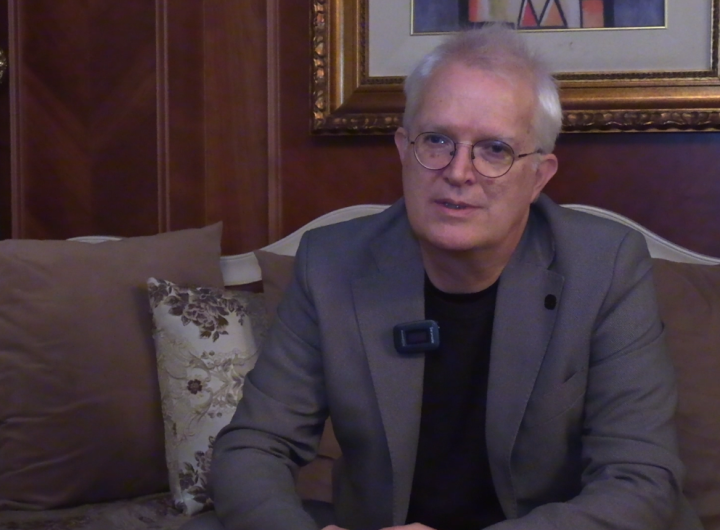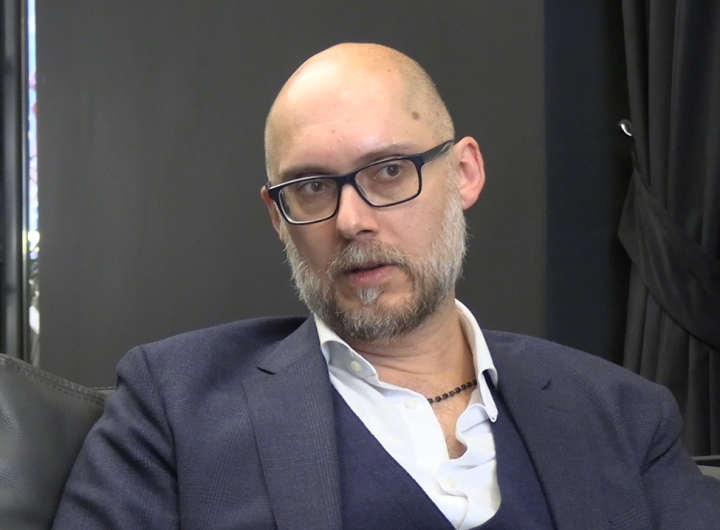
Photo: The Geopost
Russia continues its efforts to exert influence through fake content, bots, and sophisticated operations like “Doppelganger,” Polish journalist Agata Pyka says in an interview with The Geopost.
According to Pyka, Moscow is not inventing new tactics, but is using old models that have proven effective, exploiting internal polarization in European societies. The Polish journalist says that Russian anti-EU, anti-Ukraine, anti-LGBT, and anti-immigrant narratives are often amplified by domestic political actors, especially the far-right, which, she says, makes Russian interference even more dangerous and difficult to stop.
Full interview:
The Geopost: What is the situation of disinformation in Poland and in Central Europe?
Pyka: Thank you so much for having me. The recent election in Poland has shown that while Russian narratives are present and Russia still tries to exert influence and there were fake content, bots and various other disinformation tactics, various organizations compared and analyzed the election afterwards and they showed that actually the level of attempted foreign influence is more or less coherent over years. It did not increase exponentially this year compared to others and the attempts and the evolution of Russian influence remains more or less similar. So, Russia is not trying any sort of new, unknown tactics. It relies on things that they tested in the past and that worked, sadly, worked for them in the past. We’re talking about operations like Operation Doppelganger, where they take existing media and copy the interface, but insert their own content, which is, of course, full of disinformation, false narratives, harmful narratives.
Any reader can fall for it, thinking it’s a legitimate source that they know, that they have followed in the past. Many such operations were conducted. So, in this regard, we see similar attempts. The disinformation gets amplified within Poland on a domestic level. We’ve got our own actors, our own politicians, far -right parties that often amplify that kind of content and narratives on their own.
So Russia is in a comfortable position where they don’t actually have to do much because those narratives get amplified already on the Polish level and that is a large threat that’s difficult to target.
The Geopost: Which narratives do you identify as new narratives because you have an attack with drones? Which are new narratives about this situation now?
Pyka: We see more or less similar things as in the past, actually. We see anti -European Union narratives, so a lot of EU skepticism. We see anti -Ukrainian narratives, which is playing on an underlying difficult history that Poland has with Ukraine. There’s anti -LGBT narratives, anti -immigrant narratives. So, the content repeats more or less across years. We don’t see any new inventions on Russia’s side.
They are well aware that the best approach, the best for them, obviously, for their own success, of their interference attempts, is to take something that’s already polarizing in the Polish society, that’s already a difficult topic for us, where people have various and very, very different opinions and try to amplify this, try to play. around those themes and increase the polarization that’s already underlying naturally in Poland.
The Geopost: What is yourmessage to media outlets in the Balkans, how to protect from Russian disinformation?
Pyka: I feel like it’s necessary to strike the balance between covering the disinformation, covering the foreign interference attempts, and not amplifying them too much. If we put them in the spotlight and inform too much about them, we’re also going to amplify them. But if we completely ignore them, they’re going to keep brewing in society and spreading. So, I feel like it’s important to strike that balance, to call them out, and the role of independent media the role of NGOs, it’s absolutely crucial in this. Hopefully, also on a state level, the state is proactive. Like in Poland, we issued the electoral umbrella. It was an election protection plan covering different measures to protect against disinformation and foreign influence. To a degree it was successful, it was definitely something new. It was the first time we issued something like this and implemented it.
It’s a good starting point and I feel a good example for other states to learn from and to perhaps replicate.
/The Geopost

 “Balkans, hostage to old historical narratives”, German historian: Kosovo an example of rapid transformation
“Balkans, hostage to old historical narratives”, German historian: Kosovo an example of rapid transformation  Danchenkova: Ukraine is fighting two fronts – Russian attacks and disinformation war
Danchenkova: Ukraine is fighting two fronts – Russian attacks and disinformation war  Kalenský urges caution: Artificial Intelligence is becoming the main tool of Russian disinformation campaigns
Kalenský urges caution: Artificial Intelligence is becoming the main tool of Russian disinformation campaigns  Russia is using disinformation to influence Western democracies
Russia is using disinformation to influence Western democracies  “Disinformation is becoming more sophisticated,” Alexandre Alaphilippe talks about global challenges and the role of AI
“Disinformation is becoming more sophisticated,” Alexandre Alaphilippe talks about global challenges and the role of AI  Paolo Palumbo: Russia is strengthening disinformation campaigns through artificial intelligence
Paolo Palumbo: Russia is strengthening disinformation campaigns through artificial intelligence